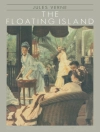Émile Zola’s ‘The Dream’ is a poignant exploration of idealism and disillusionment, set against the backdrop of 19th-century France. The narrative follows the life of a poor flower seller, Angélique, whose yearning for beauty and love contrasts sharply with her harsh reality. Zola’s naturalistic style, characterized by vivid descriptions and deeply psychological character studies, elevates this tale beyond mere romantic fiction, revealing the socio-economic struggles of the time. The novel delves into themes of social stratification, the pursuit of happiness, and the often grim outcomes of unfulfilled dreams, making it a crucial piece in understanding Zola’s broader oeuvre, marked by his acute social consciousness and literary innovation. Zola, a leading figure of the Naturalism movement, was deeply influenced by the tumultuous social and political landscape of France during his lifetime. His commitment to portraying the truth of human experiences, regardless of their discomfort, is evident in ‘The Dream’. The author’s own experiences with poverty and observation of societal injustice further shaped his lens, allowing him to vividly depict the dreams and aspirations of his characters amid adversity. This novel is highly recommended for readers interested in the interplay of realism and idealism, as Zola artfully blends these elements to create a compelling narrative. ‘The Dream’ offers profound insights into the human condition, making it an essential read for lovers of literary fiction and those keen to explore the socio-economic realities of 19th-century France.
Про автора
Émile Zola (1840–1902) was a French novelist, journalist, and a principal progenitor of the literary school of naturalism. Known for his critical scrutiny of society and keen observation of minutiae, Zola’s work transcended mere storytelling to dissect the underbelly of the human condition and the complexities of reality. His legacy includes the monumental 20-volume series Les Rougon-Macquart which chronicles the lives of two families over several generations. ‘The Dream’ (‘Le Rêve’), published in 1888 as the sixteenth installment of this series, pivots from Zola’s usual gritty realism to a more lyrical and romantic narrative, demonstrating his versatility and lending itself to a softer portrayal of social circumstances. Zola’s influence on literature is unmistakable; his essay ‘The Experimental Novel’ delineates his approach to naturalism, basing it on the same experimental methods used in the natural sciences. A man of convictions, he was instrumental to the resolution of the Dreyfus Affair—a miscarriage of justice rooted in anti-Semitism—through his famous open letter, ‘J’accuse…!’. Zola’s prolific output and steadfast commitment to social issues establish him not only as a figure of literary prominence but also as a public intellectual who utilized his pen in advocacy for truth and justice.












